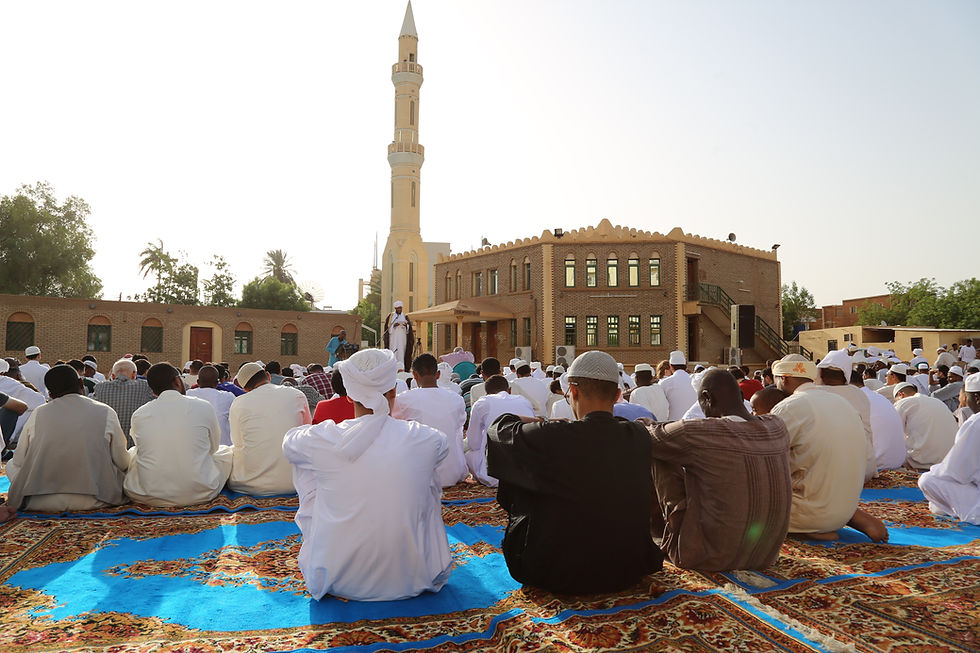Embracing Ramadan: A Global Celebration of Spiritual Reflection and Community
- Michael Acevedo

- Mar 11, 2024
- 3 min read
Ramadan, one of the holiest months in Islam, holds profound significance for millions of Muslims worldwide. Rooted in a rich history that dates back over 1,400 years, this month of fasting, prayer, and reflection serves as a time for spiritual growth and communal unity. Understanding the historical roots and diverse global celebrations of Ramadan allows for a deeper appreciation of this sacred tradition.

Historical Roots
The origins of Ramadan can be traced back to the 7th century, when the Prophet Muhammad received revelations from Allah, which later became the holy Quran. The month of Ramadan is specifically mentioned in the Quran as the time when the first verses were revealed. Fasting during this month is seen as a means of spiritual purification and self-discipline, symbolizing empathy for those who are less fortunate.
The month-long observance commemorates the first revelation of the Quran to Prophet Muhammad and is considered a time of heightened spirituality, increased acts of worship, and a deepening of one's relationship with God. The act of fasting serves as a reminder of the importance of self-control, empathy, and gratitude.
Global Celebrations
Ramadan is celebrated by Muslims around the world, and while the core tenets remain the same, the cultural expressions and traditions associated with the month vary widely. In Muslim-majority countries, cities come alive with vibrant decorations, festive lights, and an array of traditional foods. In contrast, in non-Muslim majority countries, Muslims often find ways to uphold their religious practices while living within diverse cultural contexts.
Iftar and Suhoor
A central aspect of Ramadan is the breaking of the fast, known as iftar, which occurs at sunset. Families and communities come together to share a meal, fostering a sense of unity and solidarity. Suhoor, the pre-dawn meal, is equally important, providing sustenance for the day ahead.
Lailat al-Qadr
The Night of Power, or Lailat al-Qadr, falls within the last ten days of Ramadan and is believed to be the night when the first verses of the Quran were revealed. Muslims engage in intense prayers, seeking divine blessings and forgiveness.
Charitable Acts (Zakat and Sadaqah)
Ramadan places a strong emphasis on acts of charity. Many Muslims fulfill their obligation of zakat, a mandatory form of almsgiving, during this month. Additionally, sadaqah, voluntary acts of kindness, are encouraged to help those in need.

Supporting Those Who Practice
For individuals looking to support their Muslim friends, colleagues, or neighbors during Ramadan, understanding and respecting the significance of this month is crucial. Here are a few ways to show support:
Be Mindful of Schedules:
Recognize that fasting can impact energy levels and productivity. Be considerate of scheduling meetings or events, especially during iftar or evening prayers.
Join the Celebration:
Participate in community iftar events or learn about Ramadan traditions. Engaging in the celebrations can foster cultural understanding and promote a sense of inclusivity.
Express Well Wishes:
A simple greeting such as "Ramadan Mubarak" (Blessed Ramadan) is a thoughtful way to acknowledge the significance of the month and express goodwill.
Educate Yourself:
Take the time to learn about Ramadan, its customs, and the reasons behind fasting. This knowledge can deepen your understanding and facilitate meaningful conversations.
Conclusion
Ramadan stands as a testament to the diversity within the Muslim world and the shared values of spirituality, compassion, and community. As the global community continues to bridge cultural gaps, acknowledging and respecting the practices of those who observe Ramadan is a step toward fostering unity and understanding. By supporting friends, neighbors, and colleagues during this sacred month, we contribute to a more inclusive and harmonious world.







Comments